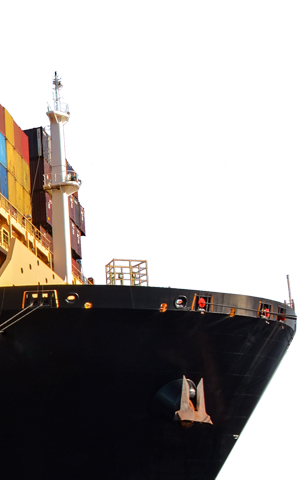FAQ: Learn How Your Business can improve cash flow with JAXPORT’s Foreign Trade Zone No. 64
- Home
- >
- Cargo Blog
- >
- FAQ: Learn How Your Business can improve cash flow with JAXPORT’s Foreign Trade Zone No. 64

As the U.S. government considers temporary duty deferrals to help alleviate the financial burdens on businesses, JAXPORT’s Foreign Trade Zone (FTZ) is a long-term solution business owners should consider – a foreign trade zone.
An FTZ allows American businesses to be competitive in the global economy by reducing tariff burdens on the importation of foreign components and on exported finished products.
JAXPORT serves as the grantee for FTZ No. 64 – the largest zone in Florida by area – encompassing nine counties and 5,000 square miles in Northeast Florida. To help businesses take advantage of this cost-savings opportunity, JAXPORT announced it would defer the FTZ application fee ($2,500) for 90 days, providing new applicants with time to realize savings.
Keep reading to learn how your business can save in FTZ No. 64 and connect with Deborah for a free customized consultation and estimate of your potential savings.
What is a Foreign-Trade Zone?
A Foreign Trade Zone (FTZ) is a secured site within the United States, but technically considered outside of U.S. Customs & Border Protection’s jurisdiction, allowing shippers to clear cargo as it leaves the FTZ while saving on import clearance costs.
How can JAXPORT’s FTZ No. 64 help you?
By using FTZ No. 64, businesses only pay duties on products sold in the U.S. and/or shipped from their FTZ location to domestic customers. This helps increase cash flow and provides savings on imported cargo shipments or manufacturing and distribution operations.
FTZ No. 64 operates under the Alternate Site Framework (ASF), which allows for easy integration into the program using your company’s existing site/location and business plan. Storage and distribution sites can be approved in 30 days or less; manufacturing and processing plants can be approved within 120 days or less.
JAXPORT can submit applications on your behalf to the FTZ Board in Washington, D.C. to request that your current facility be approved as a Foreign Trade Zone. JAXPORT is currently deferring the application cost ($2,500) for 90 days. Read more.
What are the benefits of operating in an FTZ?
In addition to duty deferral, companies can also benefit from duty reduction, or even elimination of duties altogether. Key benefits include:
Weekly Entry Savings: Within an FTZ, importers may file weekly entries with Customs instead of filing an entry every time a shipment enters the country – reducing paperwork and costs associated with entry filings.
The Merchandise Processing Fee (MPF) is a U.S. Customs charge assessed for most imports into the United States. The fee is 0.3464% of the cargo value as declared on the commercial invoice, with a minimum of $26.79 and a maximum of $519.76 per entry. A company with 10 shipments a week, valued at $10,000 each, would save $243,248 annually with weekly entries (not including any other FTZ savings).
Weekly entries also save on Customs brokerage fees. The MPF is paid directly to Customs, in addition to the Customs duties for each shipment.
Inverted Tariffs: In some cases, duties on component items or raw materials for manufacturing have a higher duty rate than the finished product, putting a U.S. manufacturer at a cost disadvantage when compared to an importer. In many cases, the duty of the final manufactured product is zero, eliminating any costs associated with importing raw materials and goods. This is referred to as an “inverted” tariff and can only be done in an FTZ.
No Duties on Re-Exports: A company importing components or raw material into an FTZ does not pay Customs duty until the final product enters U.S. commerce. There is no Customs duty assessed on a product re-exported from the FTZ.
No Duties on Waste and Scrap Merchandise: Because a manufacturer operating in an FTZ does not pay duties on imports until those goods leave the FTZ and enter the U.S., it essentially is paying for the duties on the raw materials after production. Thus, duties owed do not include manufacturing by-products, such as waste, reducing the amount of goods taxed.
No Duties on Zone-to-Zone Transfers: Businesses can manage transshipping operations in an FTZ, saving money on manufacturing processing fees and duty referral. In addition, shippers can take advantage of crossdocking and transferring goods from one FTZ to another without paying Customs duties.
Indefinite storage: An FTZ allows a company to hold goods indefinitely until the products are sold in the U.S., re-exported, or until they enter the U.S. market without falling under quote restrictions, if applicable.
How could duty deferral affect your current business situation?
Duty deferral can significantly improve your company’s cash flow. By not paying the assessed Customs duties right away, your company can utilize that cash for other purposes. Duties vary based on the product type and country of origin. You could be paying up to 25% or more on the value of your imported products as soon as your products arrive at a U.S. port. For some companies, that is a huge number – especially on products that have had sales negatively impacted by the current COVID-19 pandemic and could potentially be stored in your warehouse for an extended period of time.
Who can take advantage of an FTZ?
Any company in any industry may apply to be a part of an FTZ. Companies importing to the U.S. on a regular basis, and in high volume, are the main participants.
Many types of companies use FTZs to gain a competitive advantage, including:
- Warehousing/Distribution
- Motor Vehicle Assembly
- General Manufacturing
- Pharmaceuticals
- Machinery/Equipment
- Oil Refinery/Petrochemical
- Electronics
- Food Processing
Contact JAXPORT FTZ Manager Justin Ryan at (904) 357-3072 or justin.ryan@jaxport.com.
